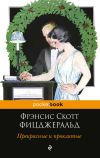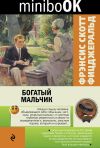
Автор книги: Френсис Фицджеральд
Жанр: Зарубежная классика, Зарубежная литература
Возрастные ограничения: 16+
сообщить о неприемлемом содержимом
Of the life of Benjamin Button between his twelfth and twenty-first year I intend to say little. Suffice to record that they were years of normal ungrowth. When Benjamin was eighteen he was erect as a man of fifty; he had more hair and it was of a dark gray; his step was firm, his voice had lost its cracked quaver and descended to a healthy baritone. So his father sent him up to Connecticut to take examinations for entrance to Yale College. Benjamin passed his examination and became a member of the freshman class.
On the third day following his matriculation he received a notification from Mr. Hart, the college registrar, to call at his office and arrange his schedule. Benjamin, glancing in the mirror, decided that his hair needed a new application of its brown dye, but an anxious inspection of his bureau drawer disclosed that the dye bottle was not there. Then he remembered – he had emptied it the day before and thrown it away.
He was in a dilemma. He was due at the registrar’s in five minutes. There seemed to be no help for it – he must go as he was. He did.
“Good-morning,” said the registrar politely. “You’ve come to inquire about your son.”
“Why, as a matter of fact, my name’s Button-” began Benjamin, but Mr. Hart cut him off.
“I’m very glad to meet you, Mr. Button. I’m expecting your son here any minute.”
“That’s me!” burst out Benjamin. “I’m a freshman.”
“What!”
“I’m a freshman.”
“Surely you’re joking.”
“Not at all.”
The registrar frowned and glanced at a card before him.
“Why, I have Mr. Benjamin Button’s age down here as eighteen.”
“That’s my age,” asserted Benjamin, flushing slightly.
The registrar eyed him wearily.
“Now surely, Mr. Button, you don’t expect me to believe that.”
Benjamin smiled wearily.
“I am eighteen,” he repeated.
The registrar pointed sternly to the door.
“Get out,” he said. “Get out of college and get out of town. You are a dangerous lunatic.”
“I am eighteen.”
Mr. Hart opened the door.
“The idea!” he shouted. “A man of your age trying to enter here as a freshman. Eighteen years old, are you? Well, I’ll give you eighteen minutes to get out of town.”
Benjamin Button walked with dignity from the room, and half a dozen undergraduates, who were waiting in the hall, followed him curiously with their eyes. When he had gone a little way he turned around, faced the infuriated registrar, who was still standing in the doorway, and repeated in a firm voice:
“I am eighteen years old.”
To a chorus of titters which went up from the group of undergraduates, Benjamin walked away.
But he was not fated to escape so easily. On his melancholy walk to the railroad station he found that he was being followed by a group, then by a swarm, and finally by a dense mass of undergraduates. The word had gone around that a lunatic had passed the entrance examinations for Yale and attempted to palm himself off as a youth of eighteen. A fever of excitement permeated the college. Men ran hatless out of classes, the football team abandoned its practice and joined the mob, professors’ wives with bonnets awry and bustles out of position, ran shouting after the procession, from which proceeded a continual succession of remarks aimed at the tender sensibilities of Benjamin Button.
“He must be the wandering Jew!”
“He ought to go to prep school at his age!”
“Look at the infant prodigy!”
“He thought this was the old men’s home.”
“Go up to Harvard!”
Benjamin increased his gait, and soon he was running. He would show them! He would go to Harvard, and then they would regret these ill-considered taunts!
Safely on board the train for Baltimore, he put his head from the window.
“You’ll regret this!” he shouted.
“Ha-ha!” the undergraduates laughed. “Ha-ha-ha!” It was the biggest mistake that Yale College had ever made…
VIn 1880 Benjamin Button was twenty years old, and he signalised his birthday by going to work for his father in Roger Button amp; Co., Wholesale Hardware. It was in that same year that he began “going out socially”-that is, his father insisted on taking him to several fashionable dances. Roger Button was now fifty, and he and his son were more and more companionable – in fact, since Benjamin had ceased to dye his hair (which was still grayish) they appeared about the same age, and could have passed for brothers.
One night in August they got into the phaeton attired in their full-dress suits and drove out to a dance at the Shevlins’ country house, situated just outside of Baltimore. It was a gorgeous evening. A full moon drenched the road to the lustreless colour of platinum, and late-blooming harvest flowers breathed into the motionless air aromas that were like low, half-heard laughter. The open country, carpeted for rods around with bright wheat, was translucent as in the day. It was almost impossible not to be affected by the sheer beauty of the sky – almost.
“There’s a great future in the dry-goods business,” Roger Button was saying. He was not a spiritual man – his aesthetic sense was rudimentary.
“Old fellows like me can’t learn new tricks,” he observed profoundly. “It’s you youngsters with energy and vitality that have the great future before you.”
Far up the road the lights of the Shevlins’ country house drifted into view, and presently there was a sighing sound that crept persistently toward them – it might have been the fine plaint of violins or the rustle of the silver wheat under the moon.
They pulled up behind a handsome brougham whose passengers were disembarking at the door. A lady got out, then an elderly gentleman, then another young lady, beautiful as sin. Benjamin started; an almost chemical change seemed to dissolve and recompose the very elements of his body. A rigour passed over him, blood rose into his cheeks, his forehead, and there was a steady thumping in his ears. It was first love.
The girl was slender and frail, with hair that was ashen under the moon and honey-coloured under the sputtering gas-lamps of the porch. Over her shoulders was thrown a Spanish mantilla of softest yellow, butterflied in black; her feet were glittering buttons at the hem of her bustled dress.
Roger Button leaned over to his son.
“That,” he said, “is young Hildegarde Moncrief, the daughter of General Moncrief.”
Benjamin nodded coldly.
“Pretty little thing,” he said indifferently. But when the negro boy had led the buggy away, he added: “Dad, you might introduce me to her.”
They approached a group, of which Miss Moncrief was the centre. Reared in the old tradition, she curtsied low before Benjamin. Yes, he might have a dance. He thanked her and walked away – staggered away. The interval until the time for his turn should arrive dragged itself out interminably. He stood close to the wall, silent, inscrutable, watching with murderous eyes the young bloods of Baltimore as they eddied around Hildegarde Moncrief, passionate admiration in their faces. How obnoxious they seemed to Benjamin; how intolerably rosy! Their curling brown whiskers aroused in him a feeling equivalent to indigestion.
But when his own time came, and he drifted with her out upon the changing floor to the music of the latest waltz from Paris, his jealousies and anxieties melted from him like a mantle of snow. Blind with enchantment, he felt that life was just beginning.
“You and your brother got here just as we did, didn’t you?” asked Hildegarde, looking up at him with eyes that were like bright blue enamel.
Benjamin hesitated. If she took him for his father’s brother, would it be best to enlighten her? He remembered his experience at Yale, so he decided against it. It would be rude to contradict a lady; it would be criminal to mar this exquisite occasion with the grotesque story of his origin. Later, perhaps. So he nodded, smiled, listened, was happy.
“I like men of your age,” Hildegarde told him. “Young boys are so idiotic. They tell me how much champagne they drink at college, and how much money they lose playing cards. Men of your age know how to appreciate women.”
Benjamin felt himself on the verge of a proposal – with an effort he choked back the impulse.
“You’re just the romantic age,” she continued, “fifty. Twenty-five is too wordly-wise; thirty is apt to be pale from overwork; forty is the age of long stories that take a whole cigar to tell; sixty is – oh, sixty is too near seventy; but fifty is the mellow age. I love fifty.”
Fifty seemed to Benjamin a glorious age. He longed passionately to be fifty.
“I’ve always said,” went on Hildegarde, “that I’d rather marry a man of fifty and be taken care of than many a man of thirty and take care of him.”
For Benjamin the rest of the evening was bathed in a honey-coloured mist. Hildegarde gave him two more dances, and they discovered that they were marvellously in accord on all the questions of the day. She was to go driving with him on the following Sunday, and then they would discuss all these questions further.
Going home in the phaeton just before the crack of dawn, when the first bees were humming and the fading moon glimmered in the cool dew, Benjamin knew vaguely that his father was discussing wholesale hardware.
“…And what do you think should merit our biggest attention after hammers and nails?” the elder Button was saying.
“Love,” replied Benjamin absent-mindedly.
“Lugs?” exclaimed Roger Button, “Why, I’ve just covered the question of lugs.”
Benjamin regarded him with dazed eyes just as the eastern sky was suddenly cracked with light, and an oriole yawned piercingly in the quickening trees…
VIWhen, six months later, the engagement of Miss Hildegarde Moncrief to Mr. Benjamin Button was made known (I say “made known,” for General Moncrief declared he would rather fall upon his sword than announce it), the excitement in Baltimore society reached a feverish pitch. The almost forgotten story of Benjamin’s birth was remembered and sent out upon the winds of scandal in picaresque and incredible forms. It was said that Benjamin was really the father of Roger Button, that he was his brother who had been in prison for forty years, that he was John Wilkes Booth in disguise – and, finally, that he had two small conical horns sprouting from his head.
The Sunday supplements of the New York papers played up the case with fascinating sketches which showed the head of Benjamin Button attached to a fish, to a snake, and, finally, to a body of solid brass. He became known, journalistically, as the Mystery Man of Maryland. But the true story, as is usually the case, had a very small circulation.
However, everyone agreed with General Moncrief that it was “criminal” for a lovely girl who could have married any beau in Baltimore to throw herself into the arms of a man who was assuredly fifty. In vain Mr. Roger Button published his son’s birth certificate in large type in the Baltimore Blaze. No one believed it. You had only to look at Benjamin and see.
On the part of the two people most concerned there was no wavering. So many of the stories about her fiancé were false that Hildegarde refused stubbornly to believe even the true one. In vain General Moncrief pointed out to her the high mortality among men of fifty – or, at least, among men who looked fifty; in vain he told her of the instability of the wholesale hardware business. Hildegarde had chosen to marry for mellowness, and marry she did…
VIIIn one particular, at least, the friends of Hildegarde Moncrief were mistaken. The wholesale hardware business prospered amazingly. In the fifteen years between Benjamin Button’s marriage in 1880 and his father’s retirement in 1895, the family fortune was doubled – and this was due largely to the younger member of the firm.
Needless to say, Baltimore eventually received the couple to its bosom. Even old General Moncrief became reconciled to his son-in-law when Benjamin gave him the money to bring out his “History of the Civil War” in twenty volumes, which had been refused by nine prominent publishers.
In Benjamin himself fifteen years had wrought many changes. It seemed to him that the blood flowed with new vigor through his veins. It began to be a pleasure to rise in the morning, to walk with an active step along the busy, sunny street, to work untiringly with his shipments of hammers and his cargoes of nails. It was in 1890 that he executed his famous business coup: he brought up the suggestion that all nails used in nailing up the boxes in which nails are shipped are the property of the shippee, a proposal which became a statute, was approved by Chief Justice Fossile, and saved Roger Button and Company, Wholesale Hardware, more than six hundred nails every year.
In addition, Benjamin discovered that he was becoming more and more attracted by the gay side of life. It was typical of his growing enthusiasm for pleasure that he was the first man in the city of Baltimore to own and run an automobile. Meeting him on the street, his contemporaries would stare enviously at the picture he made of health and vitality.
“He seems to grow younger every year,” they would remark. And if old Roger Button, now sixty-five years old, had failed at first to give a proper welcome to his son he atoned at last by bestowing on him what amounted to adulation.
And here we come to an unpleasant subject which it will be well to pass over as quickly as possible. There was only one thing that worried Benjamin Button; his wife had ceased to attract him.
At that time Hildegarde was a woman of thirty-five, with a son, Roscoe, fourteen years old. In the early days of their marriage Benjamin had worshipped her. But, as the years passed, her honey-colored hair became an unexciting brown, the blue enamel of her eyes assumed the aspect of cheap crockery – moreover, and, most of all, she had become too settled in her ways, too placid, too content, too anemic in her excitements, and too sober in her taste. As a bride it had been she who had “dragged” Benjamin to dances and dinners – now conditions were reversed. She went out socially with him, but without enthusiasm, devoured already by that eternal inertia which comes to live with each of us one day and stays with us to the end.
Benjamin’s discontent waxed stronger. At the outbreak of the Spanish-American War in 1898 his home had for him so little charm that he decided to join the army. With his business influence he obtained a commission as captain, and proved so adaptable to the work that he was made a major, and finally a lieutenant-colonel just in time to participate in the celebrated charge up San Juan Hill. He was slightly wounded, and received a medal.
Benjamin had become so attached to the activity and excitement of army life that he regretted to give it up, but his business required attention, so he resigned his commission and came home. He was met at the station by a brass band and escorted to his house.
VIIIHildegarde, waving a large silk flag, greeted him on the porch, and even as he kissed her he felt with a sinking of the heart that these three years had taken their toll. She was a woman of forty now, with a faint skirmish line of gray hairs in her head. The sight depressed him.
Up in his room he saw his reflection in the familiar mirror – he went closer and examined his own face with anxiety, comparing it after a moment with a photograph of himself in uniform taken just before the war.
“Good Lord!” he said aloud. The process was continuing. There was no doubt of it – he looked now like a man of thirty. Instead of being delighted, he was uneasy – he was growing younger. He had hitherto hoped that once he reached a bodily age equivalent to his age in years, the grotesque phenomenon which had marked his birth would cease to function. He shuddered. His destiny seemed to him awful, incredible.
When he came downstairs Hildegarde was waiting for him. She appeared annoyed, and he wondered if she had at last discovered that there was something amiss. It was with an effort to relieve the tension between them that he broached the matter at dinner in what he considered a delicate way.
“Well,” he remarked lightly, “everybody says I look younger than ever.”
Hildegarde regarded him with scorn. She sniffed.
“Do you think it’s anything to boast about?”
“I’m not boasting,” he asserted uncomfortably.
She sniffed again.
“The idea,” she said, and after a moment: “I should think you’d have enough pride to stop it.”
“How can I?” he demanded.
“I’m not going to argue with you,” she retorted. “But there’s a right way of doing things and a wrong way. If you’ve made up your mind to be different from everybody else, I don’t suppose I can stop you, but I really don’t think it’s very considerate.”
“But, Hildegarde, I can’t help it.”
“You can too. You’re simply stubborn. You think you don’t want to be like any one else. You always have been that way, and you always will be. But just think how it would be if every one else looked at things as you do – what would the world be like?”
As this was an inane and unanswerable argument Benjamin made no reply, and from that time on a chasm began to widen between them. He wondered what possible fascination she had ever exercised over him.
To add to the breach, he found, as the new century gathered headway, that his thirst for gayety grew stronger. Never a party of any kind in the city of Baltimore but he was there, dancing with the prettiest of the young married women, chatting with the most popular of the debutantes, and finding their company charming, while his wife, a dowager of evil omen, sat among the chaperons, now in haughty disapproval, and now following him with solemn, puzzled, and reproachful eyes.
“Look!” people would remark. “What a pity! A young fellow that age tied to a woman of forty-five. He must be twenty years younger than his wife.”
They had forgotten – as people inevitably forget – that back in 1880 their mammas and papas had also remarked about this same ill-matched pair.
Benjamin’s growing unhappiness at home was compensated for by his many new interests. He took up golf and made a great success of it. He went in for dancing: in 1906 he was an expert at “The Boston,” and in 1908 he was considered proficient at the “Maxixe,” while in 1909 his “Castle Walk” was the envy of every young man in town.
His social activities, of course, interfered to some extent with his business, but then he had worked hard at wholesale hardware for twenty-five years and felt that he could soon hand it on to his son, Roscoe, who had recently graduated from Harvard.
He and his son were, in fact, often mistaken for each other. This pleased Benjamin – he soon forgot the insidious fear which had come over him on his return from the Spanish-American War, and grew to take a naïve pleasure in his appearance. There was only one fly in the delicious ointment – he hated to appear in public with his wife. Hildegarde was almost fifty, and the sight of her made him feel absurd…
IXOne September day in 1910-a few years after Roger Button amp; Co., Wholesale Hardware, had been handed over to young Roscoe Button – a man, apparently about twenty years old, entered himself as a freshman at Harvard University in Cambridge. He did not make the mistake of announcing that he would never see fifty again, nor did he mention the fact that his son had been graduated from the same institution ten years before.
He was admitted, and almost immediately attained a prominent position in the class, partly because he seemed a little older than the other freshmen, whose average age was about eighteen.
But his success was largely due to the fact that in the football game with Yale he played so brilliantly, with so much dash and with such a cold, remorseless anger that he scored seven touchdowns and fourteen field goals for Harvard, and caused one entire eleven of Yale men to be carried singly from the field, unconscious.
Strange to say, in his third or junior year he was scarcely able to “make” the team. The coaches said that he had lost weight, and it seemed to the more observant among them that he was not quite as tall as before. He made no touchdowns – indeed, he was retained on the team chiefly in hope that his enormous reputation would bring terror and disorganisation to the Yale team.
In his senior year he did not make the team at all. He had grown so slight and frail that one day he was taken by some sophomores for a freshman, an incident which humiliated him terribly. He became known as something of a prodigy – a senior who was surely no more than sixteen – and he was often shocked at the worldliness of some of his classmates. His studies seemed harder to him – he felt that they were too advanced. He had heard his classmates speak of St. Midas’, the famous preparatory school, at which so many of them had prepared for college, and he determined after his graduation to enter himself at St. Midas’, where the sheltered life among boys his own size would be more congenial to him.
Upon his graduation in 1914 he went home to Baltimore with his Harvard diploma in his pocket. Hildegarde was now residing in Italy, so Benjamin went to live with his son, Roscoe. But though he was welcomed in a general way there was obviously no heartiness in Roscoe’s feeling toward him – there was even perceptible a tendency on his son’s part to think that Benjamin, as he moped about the house in adolescent mooniness, was somewhat in the way. Roscoe was married now and prominent in Baltimore life, and he wanted no scandal to creep out in connection with his family.
Benjamin, no longer persona grata with the débutantes and younger college set, found himself left much alone, except for the companionship of three or four fifteen-year-old boys in the neighborhood. His idea of going to St. Midas school recurred to him.
“Say,” he said to Roscoe one day, “I’ve told you over and over that I want to go to prep school.”
“Well, go, then,” replied Roscoe shortly. The matter was distasteful to him, and he wished to avoid a discussion.
“I can’t go alone,” said Benjamin helplessly. “You’ll have to enter me and take me up there.”
“I haven’t got time,” declared Roscoe abruptly. His eyes narrowed and he looked uneasily at his father. “As a matter of fact,” he added, “you’d better not go on with this business much longer. You better pull up short. You better – you better”– he paused and his face crimsoned as he sought for words-”you better turn right around and start back the other way. This has gone too far to be a joke. It isn’t funny any longer. You – you behave yourself!”
Benjamin looked at him, on the verge of tears.
“And another thing,” continued Roscoe, “when visitors are in the house I want you to call me ‘Uncle’-not ‘Roscoe,’ but ‘Uncle,’ do you understand? It looks absurd for a boy of fifteen to call me by my first name. Perhaps you’d better call me ‘Uncle’ all the time, so you’ll get used to it.”
With a harsh look at his father, Roscoe turned away…
Внимание! Это не конец книги.
Если начало книги вам понравилось, то полную версию можно приобрести у нашего партнёра - распространителя легального контента. Поддержите автора!








































